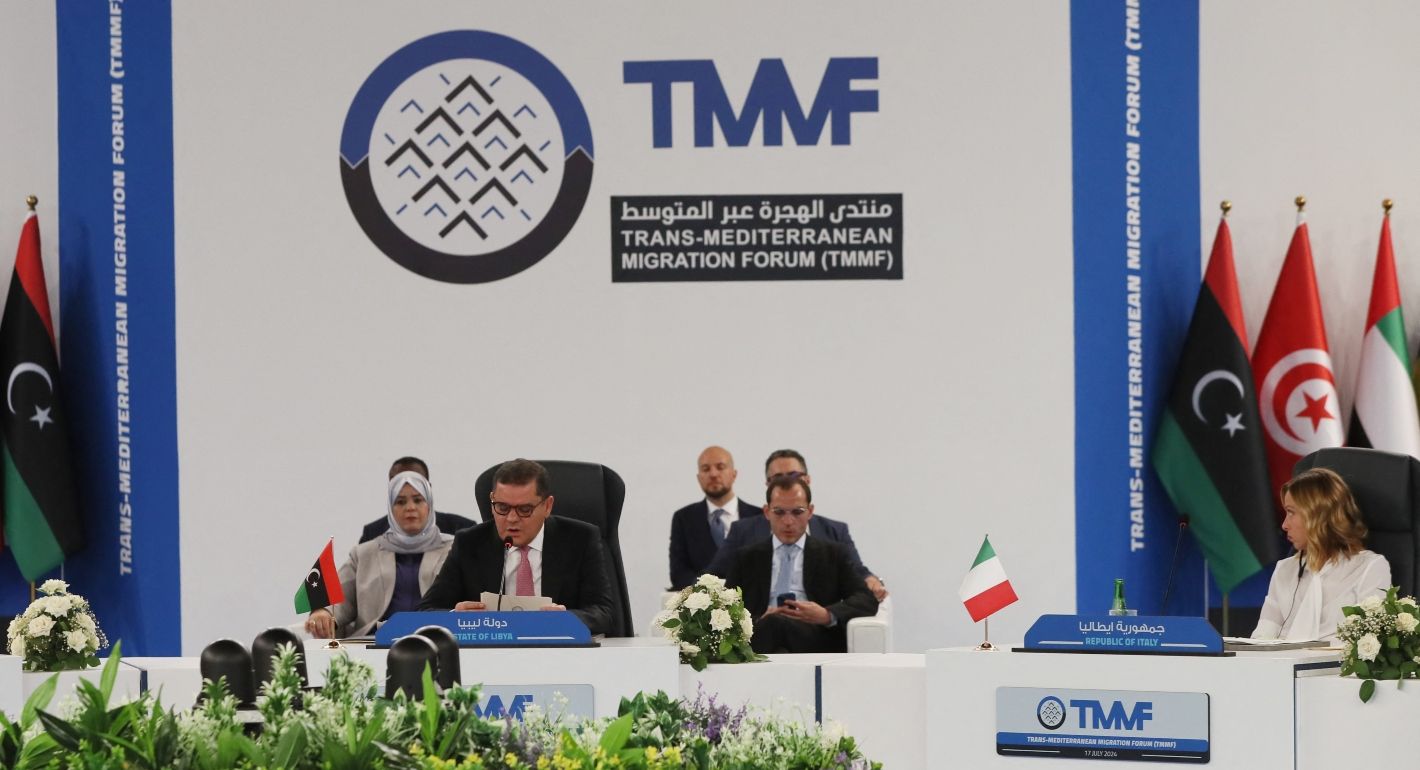This fall, the European Commission is set to present a new pact for the Mediterranean. Meanwhile, pro-democracy movements in the EU’s Southern neighborhood are watching with unease as the union abandons the democratic principles and human rights that underpinned the Barcelona Declaration, which created the framework for the bloc’s relations with the region thirty years ago.
This development may be striking for the democratic forces that have long viewed the EU as a natural ally, especially as the United States has been losing credibility as a positive actor since its 2003 invasion of Iraq. But global and regional events have led to this moment.
The EU’s new pact should balance economic, security, and migration interests with the promotion of inclusive governance reforms. That means engaging assertively with allies on both their external and their internal policies; using leverage to pursue reforms; creating a group of like-minded pro-democracy actors; and supporting democratic forces, even amid disagreements.
The Southern Mediterranean today is very different from in 1995. Democratic backsliding is in full swing, while raw military power dominates once again. Authoritarianism emerged stronger after the failures of the Arab Spring democratic revolutions in the 2010s, and civil society is largely isolated and confined to limited public spaces. Saudi Arabia and the United Arab Emirates (UAE) have asserted themselves as central powers, while Turkey has consolidated its zones of influence, Israel has emerged as a hegemonic military power, and Iran’s dreams of regional domination are being replaced by the goal of mere regime survival.
Europe has also changed significantly. It faces a severe security threat from Russia, an unpredictable United States, an increasingly assertive China, and a complex Common Foreign and Security Policy structure. Internally, antidemocratic forces are growing and threatening the EU’s commitment to the rule of law, human rights, and democracy, while there is a lack of consensus on how to address economic and environmental issues. And the wave of Islamist terrorism that has struck Europe for over a decade, coupled with the mass arrival of Arab and Muslim refugees in 2015, has made EU policies toward the region focused more on security and containment than on cooperation.
These realities have rightfully led the EU to understand that it needs more partners. But forging these partnerships at the expense of the stability and resilience of Europe’s allies is bound to backfire spectacularly. The union needs to recognize that a Southern Mediterranean strategy that fuels authoritarianism and instability would be a strategic blunder, as it would ignore three realities.
First, the EU cannot insulate itself from the impact of authoritarianism and oppression in its Southern neighborhood. Both have delivered instability and economic mismanagement in the region, repeatedly triggering popular uprisings and conflicts whose impacts Europe continues to face today.
Second, transactional appeasement has rising costs and diminishing returns. The EU is ultimately limited in what it can offer authoritarian regimes, whose demands will only grow as Europe becomes increasingly reliant on them. The relative value of the EU’s offer is also diluted in the face of China’s economic and technological strides and the military and economic prowess of rising regional powers.
Third, the regimes in Europe’s Southern neighborhood will eventually change, some of them radically. By betting exclusively on today’s incumbents, the EU risks replaying its miscalculations from the Arab Spring, when allies vanished overnight, leaving Europe scrambling to engage with new actors. The EU must also not underestimate the disillusionment among the region’s youth, many of whom will one day hold positions of influence.
If the EU is willing to take action toward a vision of shared prosperity and long-term stability, there are still meaningful ways in which its new pact can support democracy and human rights along with other geopolitical and security interests.
To start with, Europe must recognize that politics cannot be compartmentalized. EU policy cannot separate development assistance and economic cooperation from political realities, whether foreign or domestic. This means doing more to hold allies such as Israel, Turkey, and the UAE accountable for their actions. It also means adopting approaches to cooperation that balance the interests of powerful antidemocratic and extractive local actors, including militaries and some business elites, with civil society, democratic movements, and labor interests.
Then, the EU should avoid using pragmatism as a pretext for inaction. The union must expand its leverage by setting out clear expectations of realistic political reforms in exchange for cooperation. Migration policy, for example, does not have to be limited to preventing people from arriving in Europe. It can also include protection mechanisms. Financial assistance for authoritarian governments should come with an understanding of the level of participation and operating space for civil society. Encouraging economic cooperation can also create opportunities to promote the rule of law and strengthen independent media.
European leaders who share the vision of a values-based foreign policy should adopt their own Team Europe approach. While some countries may have lost credibility or interest when it comes to promoting human rights and the rule of law in the Southern Mediterranean, others, including Belgium, Ireland, Slovenia, and Spain, are viewed much more positively. These countries are well positioned to lead an agenda that promotes democracy and human rights both inside the EU and through coordinated efforts to counter antidemocratic actors.
Finally, the EU must understand that growing anti-European sentiment among publics in the Southern Mediterranean is rooted in frustrations over what they see as the EU’s double standards on Israel and Palestine, restrictive migration policies, and unapologetic backing of authoritarian regimes. The EU cannot resolve these frustrations by engaging in strategic communication, blaming disinformation, or cutting support to civil society organizations critical of the union. Unless policies address root causes, this sentiment is here to stay. Instead, the EU should back independent groups that, while not always aligned with its messaging, share its fundamental values.
At a time of cut-throat geopolitical competition in an increasingly volatile world, the EU must fortify its Southern flank. It can do so only by fostering strong and resilient relationships that are rooted in shared values and broad public support.
Hussein Baoumi is deputy regional director for the Middle East and North Africa at Amnesty International.












